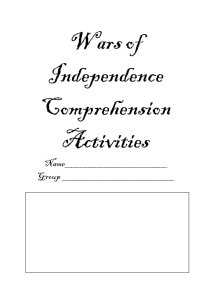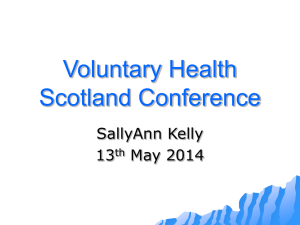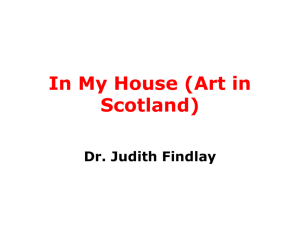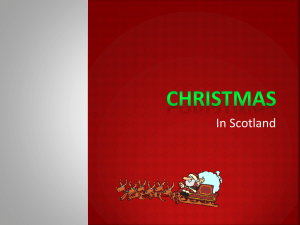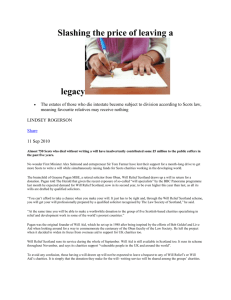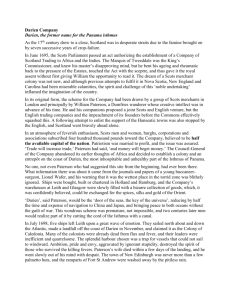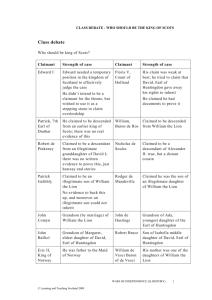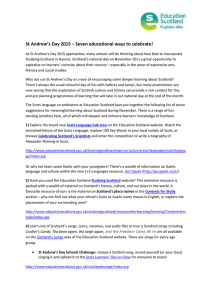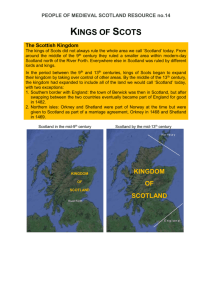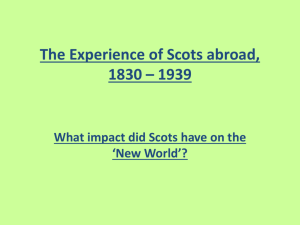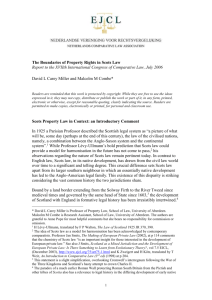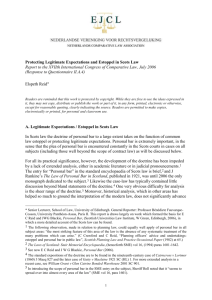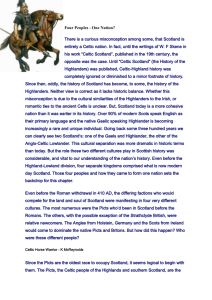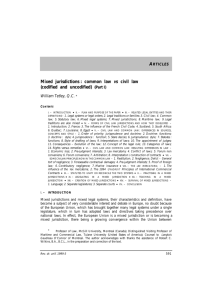Beautiful, rugged and flawed? `New World Scots`
advertisement
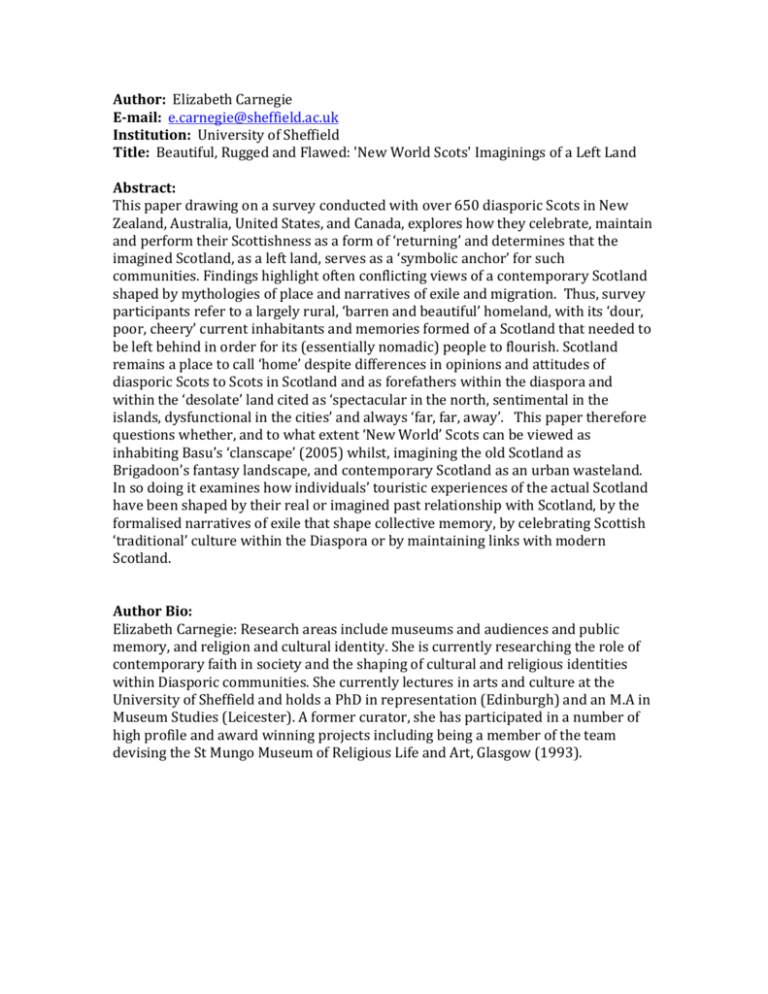
Author: Elizabeth Carnegie E-mail: e.carnegie@sheffield.ac.uk Institution: University of Sheffield Title: Beautiful, Rugged and Flawed: 'New World Scots' Imaginings of a Left Land Abstract: This paper drawing on a survey conducted with over 650 diasporic Scots in New Zealand, Australia, United States, and Canada, explores how they celebrate, maintain and perform their Scottishness as a form of ‘returning’ and determines that the imagined Scotland, as a left land, serves as a ‘symbolic anchor’ for such communities. Findings highlight often conflicting views of a contemporary Scotland shaped by mythologies of place and narratives of exile and migration. Thus, survey participants refer to a largely rural, ‘barren and beautiful’ homeland, with its ‘dour, poor, cheery’ current inhabitants and memories formed of a Scotland that needed to be left behind in order for its (essentially nomadic) people to flourish. Scotland remains a place to call ‘home’ despite differences in opinions and attitudes of diasporic Scots to Scots in Scotland and as forefathers within the diaspora and within the ‘desolate’ land cited as ‘spectacular in the north, sentimental in the islands, dysfunctional in the cities’ and always ‘far, far, away’. This paper therefore questions whether, and to what extent ‘New World’ Scots can be viewed as inhabiting Basu’s ‘clanscape’ (2005) whilst, imagining the old Scotland as Brigadoon’s fantasy landscape, and contemporary Scotland as an urban wasteland. In so doing it examines how individuals’ touristic experiences of the actual Scotland have been shaped by their real or imagined past relationship with Scotland, by the formalised narratives of exile that shape collective memory, by celebrating Scottish ‘traditional’ culture within the Diaspora or by maintaining links with modern Scotland. Author Bio: Elizabeth Carnegie: Research areas include museums and audiences and public memory, and religion and cultural identity. She is currently researching the role of contemporary faith in society and the shaping of cultural and religious identities within Diasporic communities. She currently lectures in arts and culture at the University of Sheffield and holds a PhD in representation (Edinburgh) and an M.A in Museum Studies (Leicester). A former curator, she has participated in a number of high profile and award winning projects including being a member of the team devising the St Mungo Museum of Religious Life and Art, Glasgow (1993).

